When doing:
DELETE FROM `jobs` WHERE `job_id` =1 LIMIT 1
It errors:
#1451 - Cannot delete or update a parent row: a foreign key constraint fails
(paymesomething.advertisers, CONSTRAINT advertisers_ibfk_1 FOREIGN KEY
(advertiser_id) REFERENCES jobs (advertiser_id))
Here are my tables:
CREATE TABLE IF NOT EXISTS `advertisers` (
`advertiser_id` int(11) unsigned NOT NULL AUTO_INCREMENT,
`name` varchar(255) NOT NULL,
`password` char(32) NOT NULL,
`email` varchar(128) NOT NULL,
`address` varchar(255) NOT NULL,
`phone` varchar(255) NOT NULL,
`fax` varchar(255) NOT NULL,
`session_token` char(30) NOT NULL,
PRIMARY KEY (`advertiser_id`),
UNIQUE KEY `email` (`email`)
) ENGINE=InnoDB DEFAULT CHARSET=utf8 AUTO_INCREMENT=2 ;
INSERT INTO `advertisers` (`advertiser_id`, `name`, `password`, `email`, `address`, `phone`, `fax`, `session_token`) VALUES
(1, 'TEST COMPANY', '', '', '', '', '', '');
CREATE TABLE IF NOT EXISTS `jobs` (
`job_id` int(11) unsigned NOT NULL AUTO_INCREMENT,
`advertiser_id` int(11) unsigned NOT NULL,
`name` varchar(255) NOT NULL,
`shortdesc` varchar(255) NOT NULL,
`longdesc` text NOT NULL,
`address` varchar(255) NOT NULL,
`time_added` int(11) NOT NULL,
`active` tinyint(1) NOT NULL,
`moderated` tinyint(1) NOT NULL,
PRIMARY KEY (`job_id`),
KEY `advertiser_id` (`advertiser_id`,`active`,`moderated`)
) ENGINE=InnoDB DEFAULT CHARSET=utf8 AUTO_INCREMENT=2 ;
INSERT INTO `jobs` (`job_id`, `advertiser_id`, `name`, `shortdesc`, `longdesc`, `address`, `active`, `moderated`) VALUES
(1, 1, 'TEST', 'TESTTEST', 'TESTTESTES', '', 0, 0);
ALTER TABLE `advertisers`
ADD CONSTRAINT `advertisers_ibfk_1` FOREIGN KEY (`advertiser_id`) REFERENCES `jobs` (`advertiser_id`);
